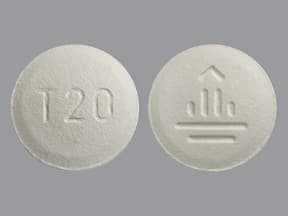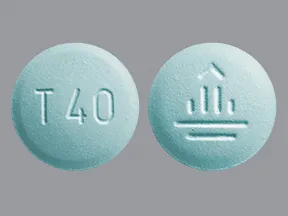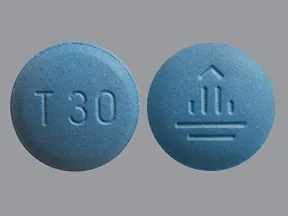Do not share this medication with others.
Lab and/or medical tests (such as liver function) should be done while you are taking this medication. Keep all medical and lab appointments. Consult your doctor for more details.
Afatinib is used to treat a certain type of lung cancer (non-small cell lung cancer). It belongs to a class of drugs known as kinase inhibitors. It works by slowing or stopping the growth of cancer cells. It binds to a certain protein (epidermal growth factor receptor-EGFR) in some tumors.
Read the Patient Information Leaflet if available from your pharmacist before you start taking afatinib and each time you get a refill. If you have any questions, ask your doctor or pharmacist.
Take this medication by mouth as directed by your doctor, usually once daily at least 1 hour before or 2 hours after a meal.
The dosage is based on your medical condition, response to treatment, and other medications you may be taking. Be sure to tell your doctor and pharmacist about all the products you use (including prescription drugs, nonprescription drugs, and herbal products).
Use this medication regularly to get the most benefit from it. To help you remember, take it at the same time each day.
Do not increase your dose or use this drug more often or for longer than prescribed. Your condition will not improve any faster, and your risk of serious side effects will increase.
Since this drug can be absorbed through the skin and lungs and may harm an unborn baby, women who are pregnant or who may become pregnant should not handle this medication or breathe the dust from the tablets.
Mouth sores, pain/redness/swelling of lips, dry/itchy skin, acne, nose bleed, runny nose, nausea/vomiting, or loss of appetite may occur. If any of these effects last or get worse, tell your doctor or pharmacist promptly.
Remember that this medication has been prescribed because your doctor has judged that the benefit to you is greater than the risk of side effects. Many people using this medication do not have serious side effects.
Diarrhea is a common side effect. Drink plenty of fluids as directed by your doctor to reduce your risk of dehydration. Your doctor may prescribe anti-diarrhea medication (such as loperamide) to control your symptoms. Tell your doctor right away if you develop: diarrhea that is severe or doesn't stop, symptoms of dehydration (such as unusual decreased urination, unusual dry mouth/thirst, fast heartbeat, or dizziness/lightheadedness).
Tell your doctor right away if you have any serious side effects, including: signs of eye disease (such as vision changes, eye redness/pain, light sensitivity, eye discharge), signs of low level of potassium in the blood (such as muscle cramps, weakness, irregular heartbeat), signs of bladder infection (such as burning/pain when you urinate, urgent or frequent urination, fever), signs of skin infection around nails/toenails (such as skin irritation/redness around the nail, change in nail color).
Get medical help right away if you have any very serious side effects, including: symptoms of lung problems (such as trouble breathing, chest pain), symptoms of heart failure (such as shortness of breath, swelling ankles/feet, unusual tiredness, unusual/sudden weight gain).
Afatinib may rarely cause serious (possibly fatal) liver disease or tear in the stomach or intestinal wall (perforation). Get medical help right away if you have symptoms such as: nausea/vomiting that doesn't stop, loss of appetite, dark urine, stomach/abdominal pain, yellowing eyes/skin.
Afatinib can commonly cause a rash that is usually not serious. However, you may not be able to tell it apart from a rare rash that could be a sign of a severe reaction. Get medical help right away if you develop any rash.
A very serious allergic reaction to this drug is rare. However, get medical help right away if you notice any symptoms of a serious allergic reaction, including: rash, itching/swelling (especially of the face/tongue/throat), severe dizziness, trouble breathing.
This is not a complete list of possible side effects. If you notice other effects not listed above, contact your doctor or pharmacist.
In the US - Call your doctor for medical advice about side effects. You may report side effects to FDA at 1-800-FDA-1088 or at www.fda.gov/medwatch.
In Canada - Call your doctor for medical advice about side effects. You may report side effects to Health Canada at 1-866-234-2345.
Before taking afatinib, tell your doctor or pharmacist if you are allergic to it; or if you have any other allergies. This product may contain inactive ingredients, which can cause allergic reactions or other problems. Talk to your pharmacist for more details.
Before using this medication, tell your doctor or pharmacist your medical history, especially of: kidney problems, liver problems, stomach/intestinal problems (such as ulcers, diverticular disease), eye disease (such as severe dry eyes, keratitis), use of contact lenses.
This drug may cause blurred vision. Do not drive, use machinery, or do anything that needs clear vision until you are sure you can perform such activities safely. Limit alcoholic beverages.
This medication may make you more sensitive to the sun. Limit your time in the sun. Avoid tanning booths and sunlamps. Use sunscreen and wear protective clothing when outdoors. Tell your doctor right away if you get sunburned or have skin blisters/redness.
Before having surgery, tell your doctor or dentist about all the products you use (including prescription drugs, nonprescription drugs, and herbal products).
Tell your doctor if you are pregnant or plan to become pregnant. You should not become pregnant while using afatinib. Afatinib may harm an unborn baby. Ask about reliable forms of birth control while using this medication and for at least 2 weeks after the last dose. If you become pregnant, talk to your doctor right away about the risks and benefits of this medication.
Since this drug can be absorbed through the skin and lungs and may harm an unborn baby, women who are pregnant or who may become pregnant should not handle this medication or breathe the dust from the tablets.
It is unknown if this drug passes into breast milk. Because of the possible risk to the infant, breastfeeding is not recommended while using this drug and for 2 weeks after the last dose. Consult your doctor before breastfeeding.
Drug interactions may change how your medications work or increase your risk for serious side effects. This document does not contain all possible drug interactions. Keep a list of all the products you use (including prescription/nonprescription drugs and herbal products) and share it with your doctor and pharmacist. Do not start, stop, or change the dosage of any medicines without your doctor's approval.
If someone has overdosed and has serious symptoms such as passing out or trouble breathing, call 911. Otherwise, call a poison control center right away. US residents can call 1-800-222-1222. Canada residents can call 1-844-764-7669. Symptoms of overdose may include: severe nausea/vomiting/stomach pain, severe dizziness, weakness.
Do not share this medication with others.
Lab and/or medical tests (such as liver function) should be done while you are taking this medication. Keep all medical and lab appointments. Consult your doctor for more details.
If you miss a dose, take it as soon as you remember. If it is more than 12 hours after the missed dose, skip the missed dose. Take your next dose at the regular time. Do not double the dose to catch up.
Store in the original container at room temperature away from light and moisture. Do not store in the bathroom. Keep all medications away from children and pets.
Do not flush medications down the toilet or pour them into a drain unless instructed to do so. Properly discard this product when it is expired or no longer needed. Consult your pharmacist or local waste disposal company.

Gilotrif 20 mg tablet
Color: whiteShape: roundImprint: T20 logoThis medicine is a white, round, film-coated, tablet imprinted with "T20" and "logo".

Gilotrif 40 mg tablet
Color: light blueShape: roundImprint: T40 logoThis medicine is a white, round, film-coated, tablet imprinted with "T20" and "logo".

Gilotrif 30 mg tablet
Color: dark blueShape: roundImprint: T30 logoThis medicine is a white, round, film-coated, tablet imprinted with "T20" and "logo".